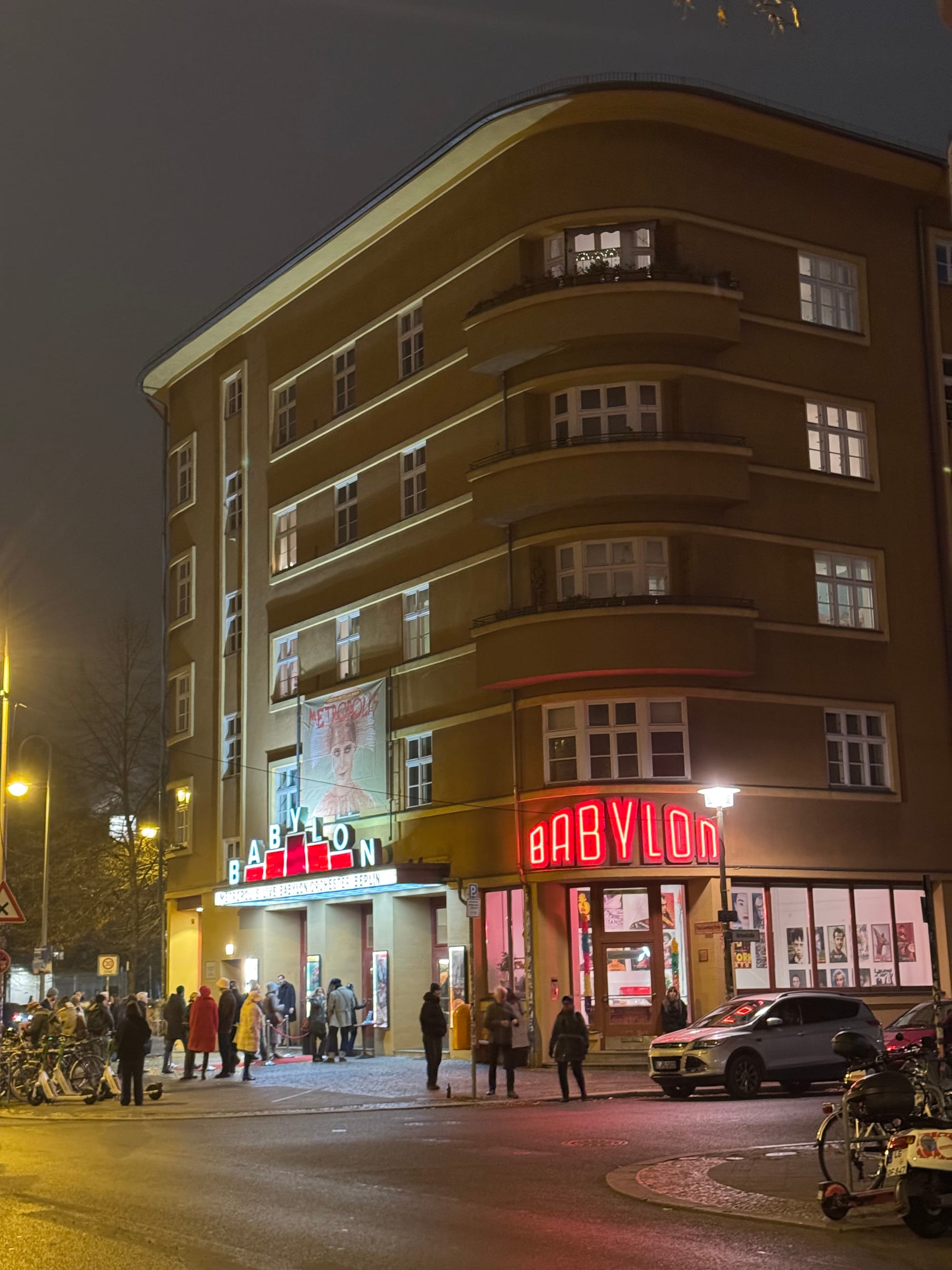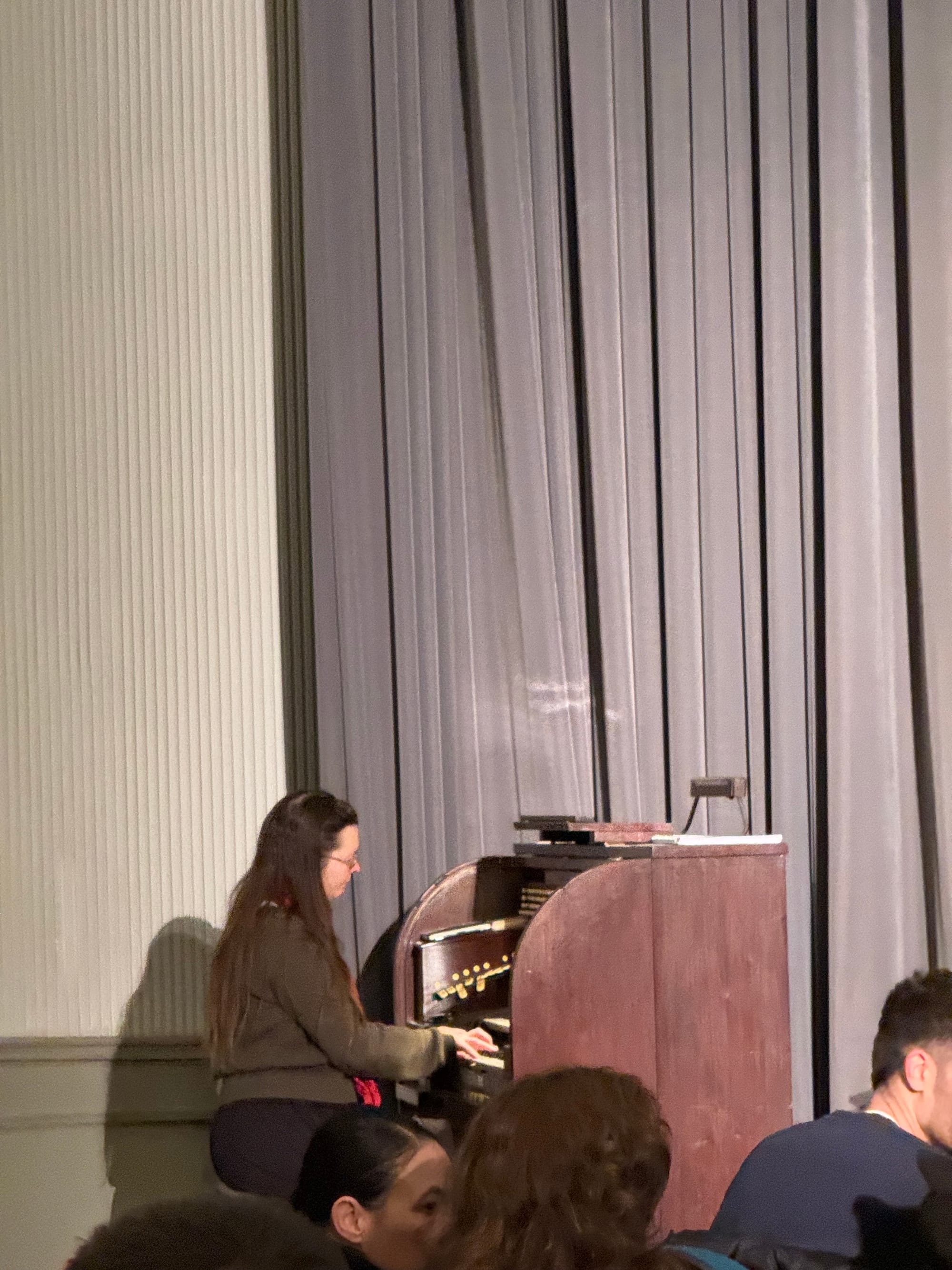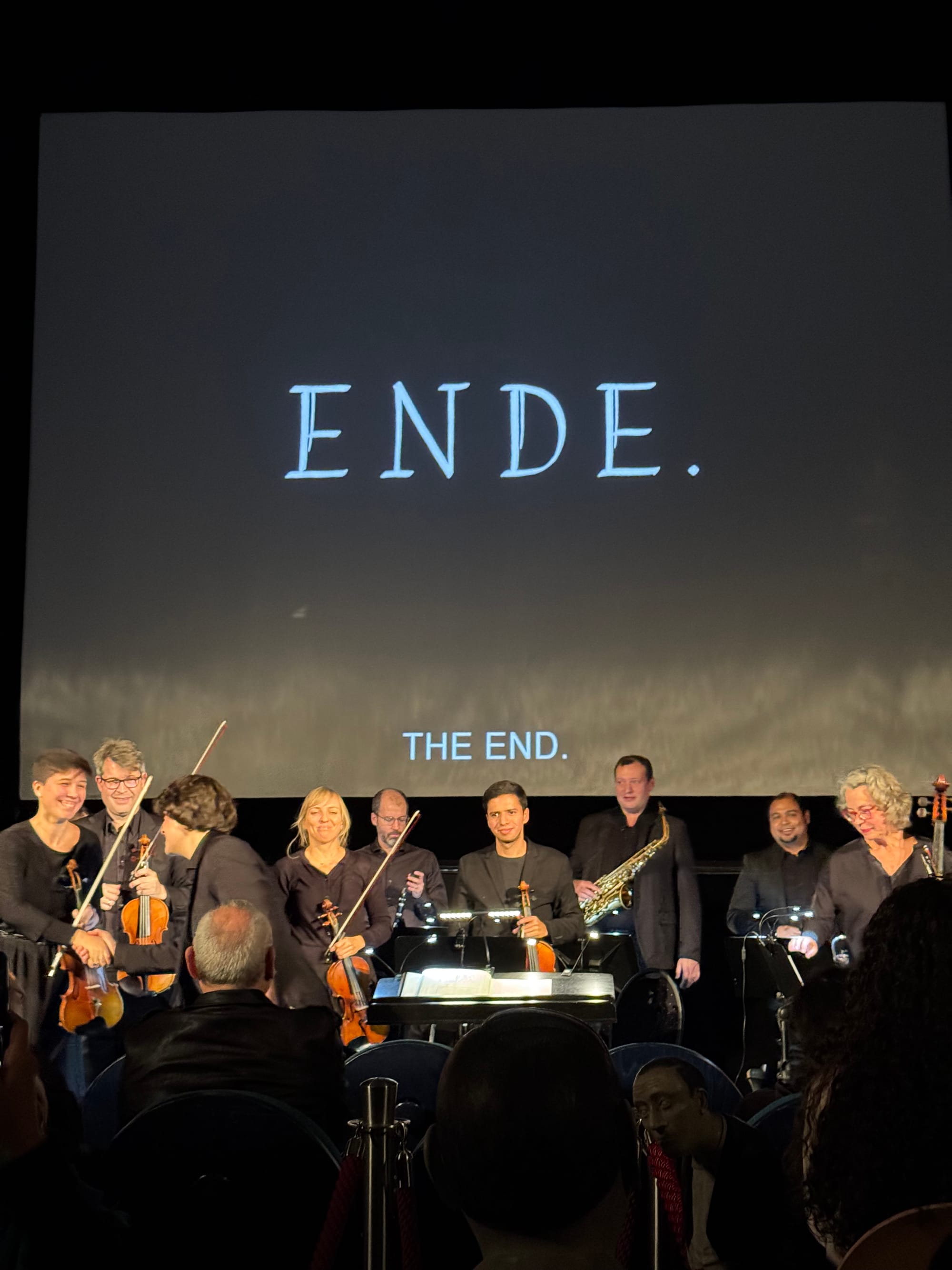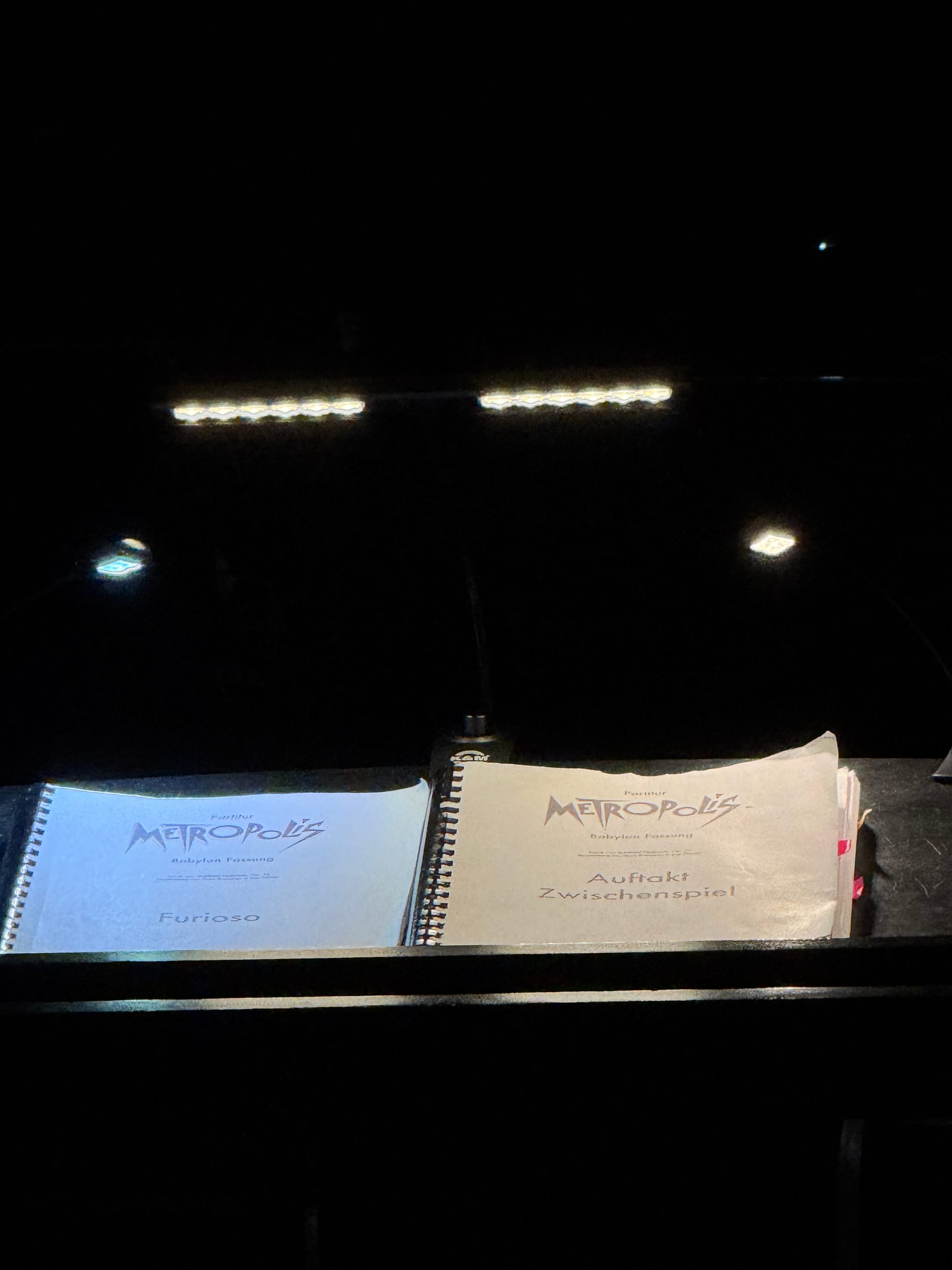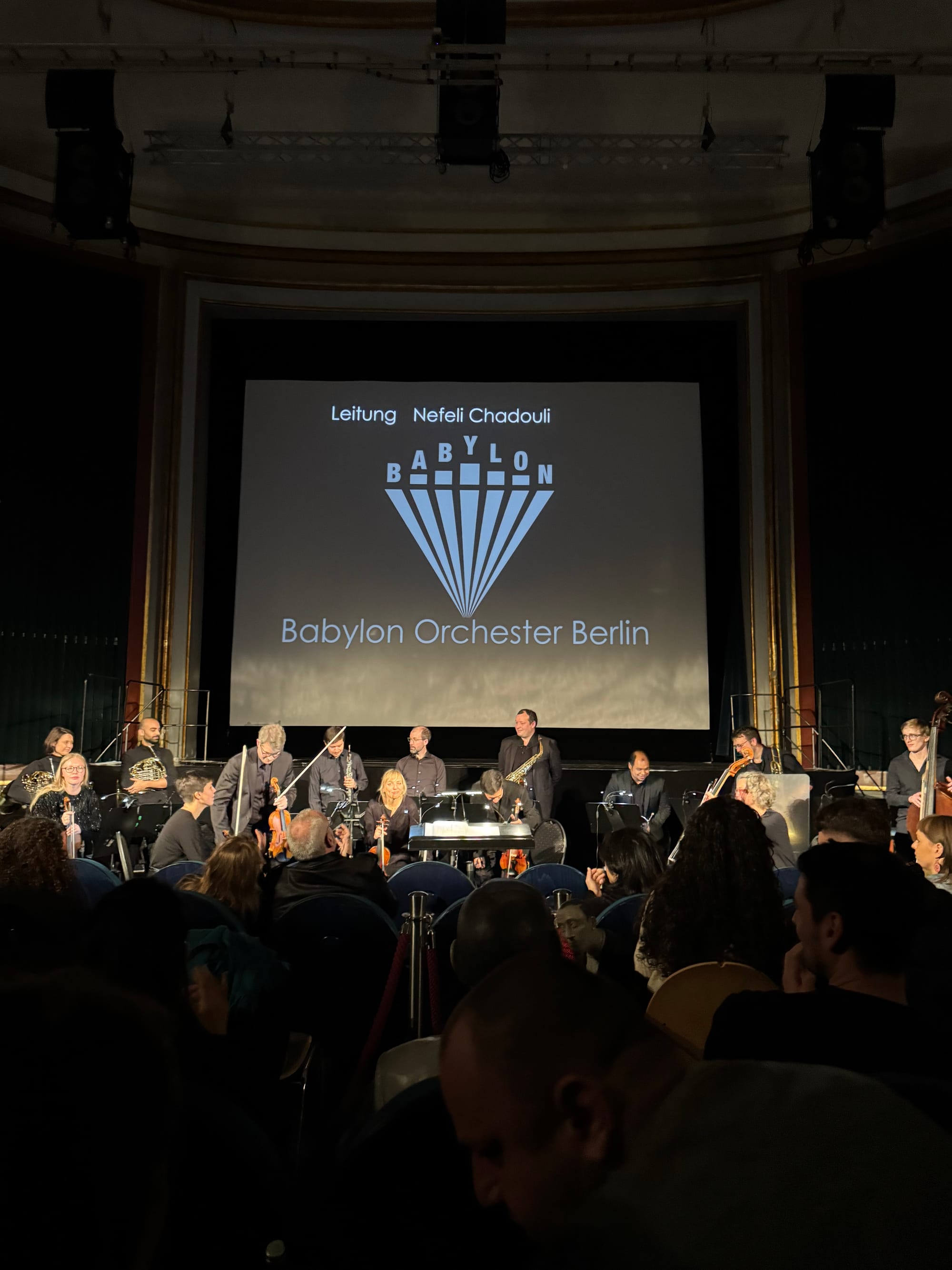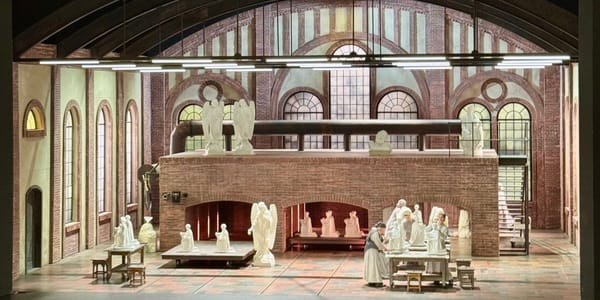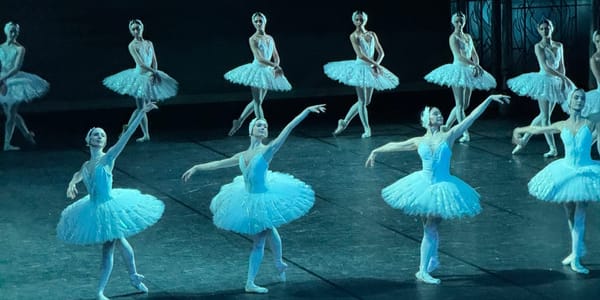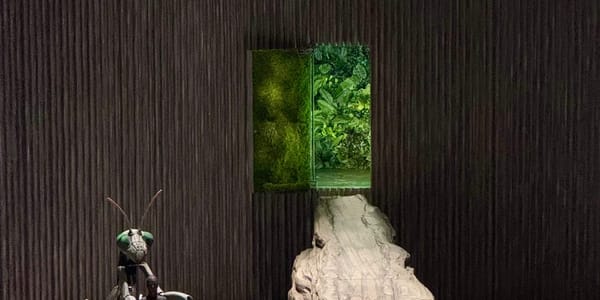Metropolis at Babylon Berlin
This experience at BABYLON really emphasizes the historical connection between classical music and cinema scores. After all, Huppertz was a contemporary of Strauss and Mahler!
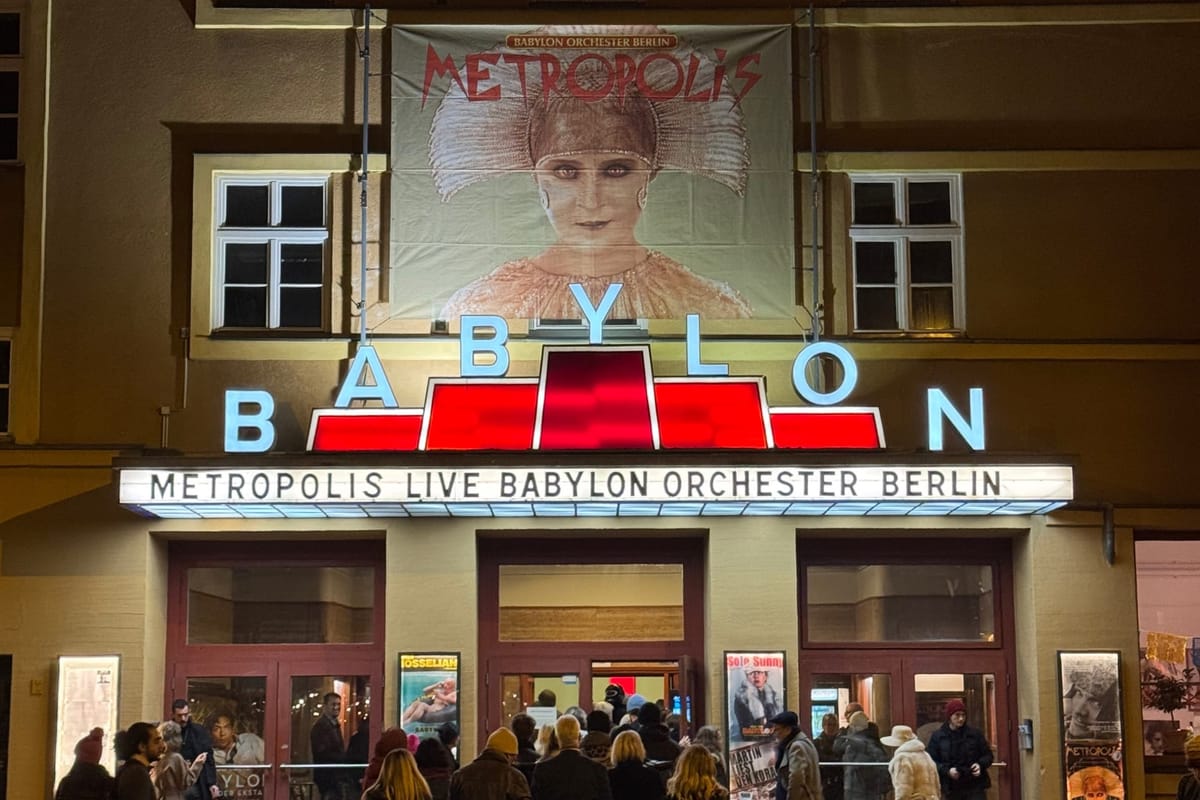
⭐️⭐️⭐️
🎭 Metropolis
🎶 Gottfried Huppertz
🎥 Fritz Lang
🏛️ Babylon Berlin
🗓️ 10.11.2024
“Tonight, we‘re correcting a historical mistake in cinema: the removal of live music.” This was the introduction to a very special evening at the only remaining cinema from Berlin’s silent film era: BABYLON. Restored with great effort at the turn of the millennium, this cinema still retains its orchestra pit as well as the only cinema organ still in use at its original location—which is delightfully played for entertaining background music while people find their seats.
The organ music sets the mood for the rest of the evening and makes one thing very clear: this is a live music event with professional artists, without whom such a form of cinema (the original form) cannot take place. It’s the first time that I’ve become aware of the continuity between theater/opera and cinema when it was just emerging. In fact, BABYLON—originally with a seating capacity of over 1.200!—is architecturally much more like a theater or opera house than what we think of a blockbuster cinema today.
While BABYLON also shows “regular” films, what it is most known for (and what I see most content on IG for) are such screenings of “historic” silent movies, accompanied by its in-house orchestra (@babylon.orchester.berlin). This time, we saw METROPOLIS, perhaps THE most impactful German movie of all time, and ahead of its time in more than one way. As iconic as the movie is, with its futuristic cityscapes and Marxist class conflict theme, the main character of the evening was the MUSIC. Composed by Gottfried Huppertz, the beautiful expressionist film score excels at portraying plot, emotions, tension, détente.
Accompanying a silent movie, this is obviously its main function. And yet I find that this music, almost one hundred years later, still rivals the film scores we most love today (thinking personally of Dune 2). I wager that even without the movie playing, the evening would still have been an amazing musical experience, not unlike a performance at the Konzerthaus: in the score, Huppertz references other symphonic composition (I definitely heard some Tchaikovsky in there, not just with the 1812/Marseillaise reference), and the orchestra gives it their all for almost two and a half hours.
Why post this on an account dedicated to opera and classical concerts? Firstly, because this experience at BABYLON really emphasizes the historical connection between classical music and cinema scores. After all, Huppertz was a contemporary of Strauss and Mahler! Secondly: why not? This was an evening-filling event with an entire orchestra, conductor, intermission drinks, and applause—but with popcorn and a movie screen. Just because a piece of music isn‘t part of the standard repertoire of a philharmonic orchestra doesn‘t make it less moving, impactful, or brilliant.
In times in which creative work is increasingly automated—think marketing campaigns or music created by generative AI—it‘s a refreshing reminder to see that actually, “it takes a village” to make and perform art. “Maybe this format will become the future of cinema” was said as part of the evening‘s introduction, referring to live orchestra music. We shall be hopeful! In any case I‘ll be back at BABYLON soon, maybe for Nosferatu.
